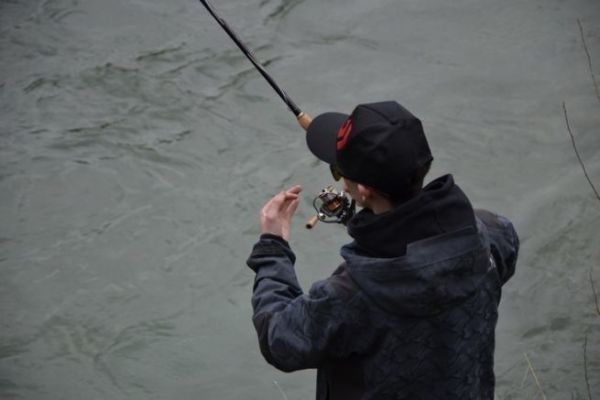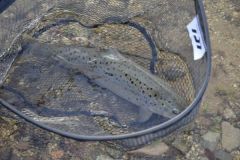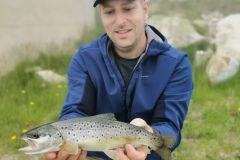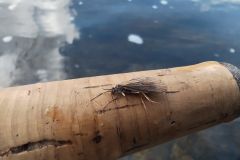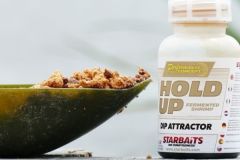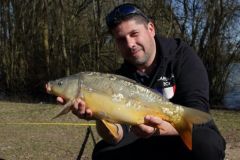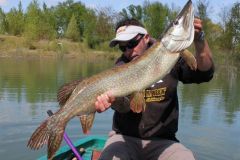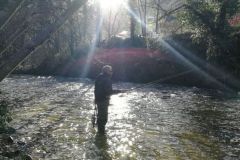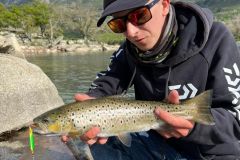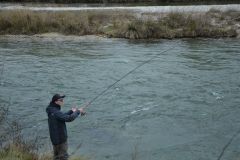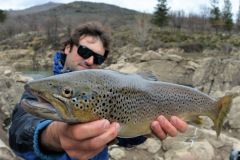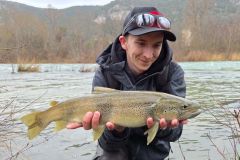Choice of equipment and bait
A long, light rod, usually in carbon, is used for this technique. A size 2000 spinning reel will provide a light and ample package.
When it comes to bait, toc fishing uses natural baits such as earthworms, caddisfly larvae or grasshoppers, depending on the season and biotope.
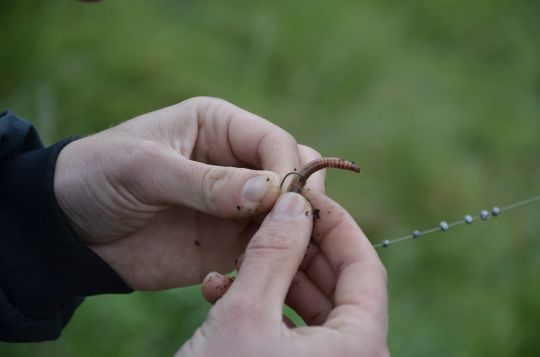
Rigging for toc fishing
Rigging for trout fishing is crucial to present the bait in a natural way and trigger attacks.
Use a 14/100 or 16/100 nylon line body. At low water or for greater discretion, you can go down to 12/100 or 10/100. A fluorescent line may be recommended to better follow the drift of the line when starting out.
The leader should be made of fluorocarbon, with a diameter 1 to 2 hundredths smaller than the line body (e.g. 12/100 or 10/100). It should measure about 50 cm and be fitted with a hook size 10 to 14, adapted to the size of the bait.
The sinker should be degressive, with the heaviest weights at the top and the lightest at the bottom. A typical sinker might start with a n°3 sinker near the swivel, followed by n°4, n°5, n°6 sinkers, and ending with two n°7 sinkers. The arrangement of the sinkers should allow for a natural presentation of the bait.
Adjust the total weight of the sinker to suit the fishing conditions. For example, 4 n°8 sinkers constitute a light sinker, while 5 or more n°5 sinkers can be considered heavy.
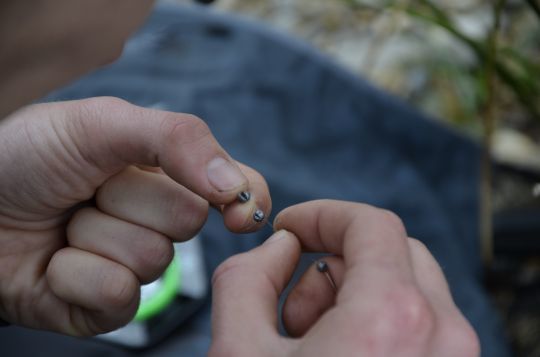
Use one or two rigoletto, or small round plugs, to help detect bites and estimate the depth reached by the rig. They can also be used to make an immediate strike as soon as the fish grabs the bait.
Choose a hook size 10 to 14, depending on the size of bait you are using. Make sure the hook is sharp for effective striking.
The knocking technique
The angler casts his line upstream and lets the bait drift naturally with the current. The aim is to keep the bait drifting naturally, controlling the line to avoid snags and detect bites. When a bite is detected, the angler must strike quickly to hook the trout.
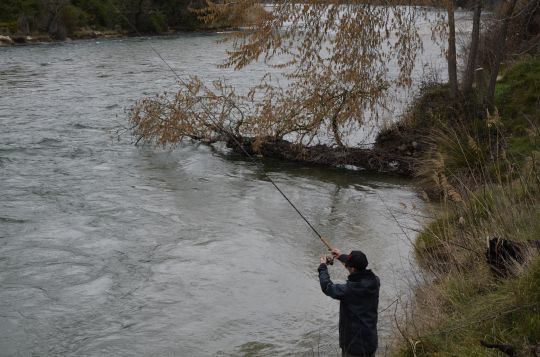
The advantages of toc fishing
- Natural: this is a very natural technique that can fool wary trout.
- Versatile: can be practised in a variety of rivers and conditions.
The disadvantages of toc fishing
- Difficulty: mastering the drift and detecting hits requires experience and practice.
- Conditions: weather conditions and water levels can affect the effectiveness of this technique.
Tackle fishing is appreciated for its technical aspect and its ability to catch wild trout in their natural environment. However, this technique is not always easy to master, especially on large fish and when fishing conditions change regularly.
